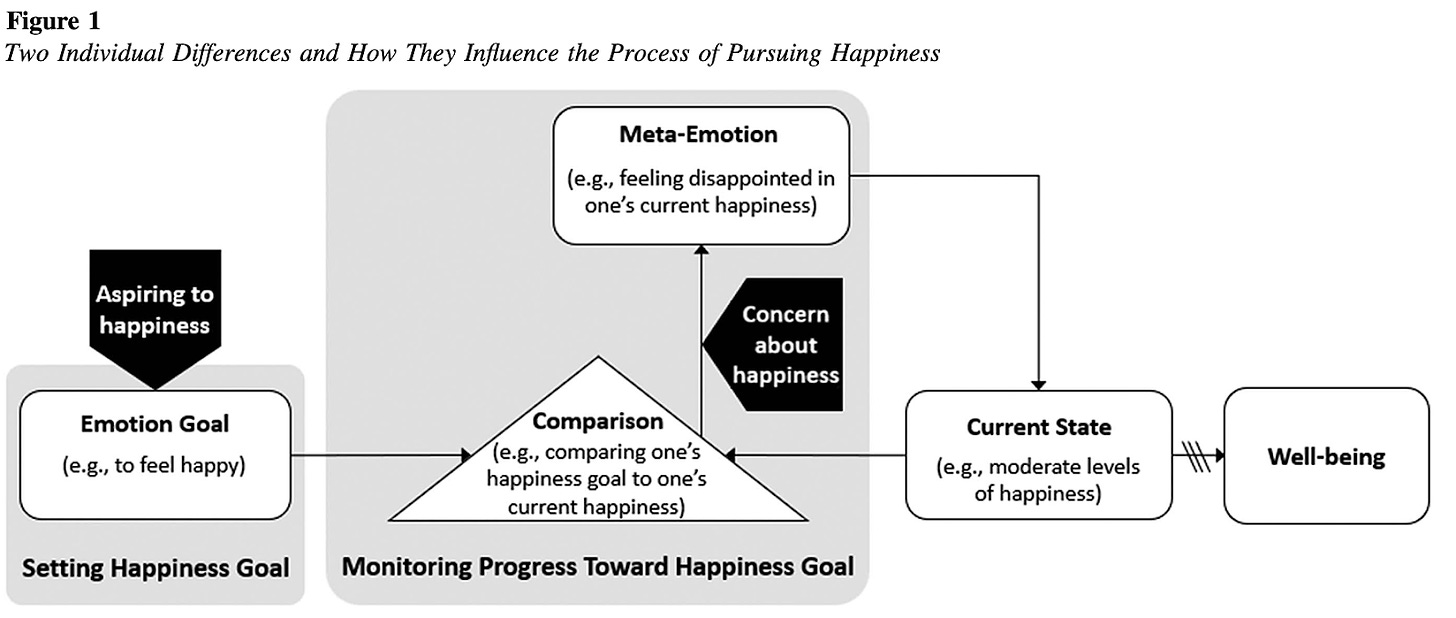Want to be happier? Don't stress about it.
Plus: new research on balancing work and family, and how social media is like donuts
It’s December! We’re hanging stockings! We’re making menorahs out of finger paint! We’re bolting out of bed in a panic after remembering we forgot to move the Elf on the Shelf!
And, of course, we’re reading the latest research. It’s time for this month’s 5-Minute Research Roundup!
Last month, we talked about new research on problematic screen use in little kids, social media and teen mental health, and what kinds of videos kids are seeing on YouTube.
Today we’ve got new studies on:
How (and whether) to pursue happiness
Balancing work and family
10 myths about social media and well-being
Reminder: to support Techno Sapiens and get full access to monthly research roundups like this one, please consider a paid subscription (20% off right now!)
1. Should we stop chasing happiness? Or just not worry about it?
If you, like me, are the kind of person who reads inspirational quotes, you’ve probably seen classics like “Happiness is like a butterfly, the more you chase it, the more it will evade you” or “The moment you stop chasing happiness, you become happy.”1 But is it true? Is the pursuit of happiness actually getting in the way of us being happy?
In typical academic fashion, this paper takes that question and turns it into a complex model with many arrows and shapes. But stick with me, here!
In a series of studies, the researchers separate the “pursuit of happiness” into two components: aspiring to happiness (“Feeling happy is extremely important to me”) and concern about happiness (“I am concerned about my happiness even when I feel happy.”) Across multiple samples (totalling over 700 adults) and time frames (concurrently, and longitudinally over 6 months), aspiring to happiness had no impact on actual well-being, but concern about happiness was a different story. Those who were more concerned about being happy reported lower life satisfaction, lower well-being, and higher depressive symptoms.
My take: I love a study that takes a philosophical truth and puts it to the test. This one does not disappoint! Here’s the takeaway: it’s okay to care about your own happiness, and to take steps toward making yourself happier (may I suggest reading Techno Sapiens as one such step?). What’s not so helpful is to be so worried about your happiness that you’re unable to enjoy the good stuff when it actually happens. Try not to judge your feelings (i.e., I should be happier right now!) and instead, let them be what they are. Emotion.
2. How to balance work and family
Work-family conflict (WFC) refers to the feeling people get when the demands of their jobs interfere with their home or family life in some way. Totally foreign to me, of course (*cries into laptop*).
This study uses incredibly thorough methods to test the relationship between work-family conflict and feelings of burnout (this study calls it “psychological strain”).
Keep reading with a 7-day free trial
Subscribe to Techno Sapiens to keep reading this post and get 7 days of free access to the full post archives.





